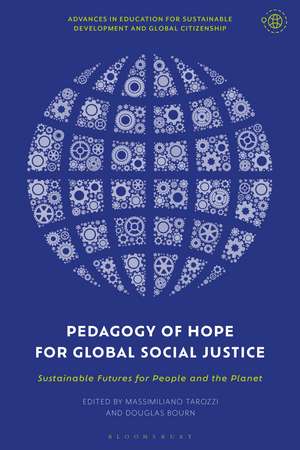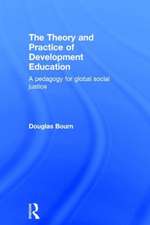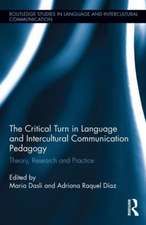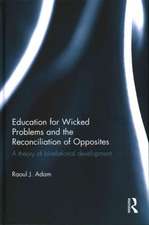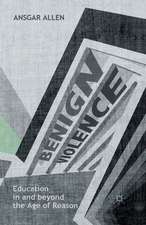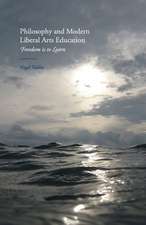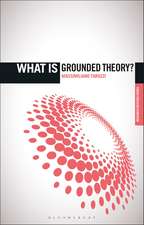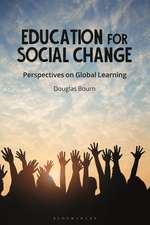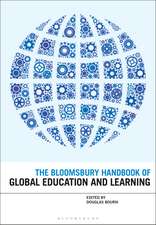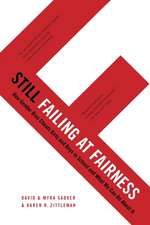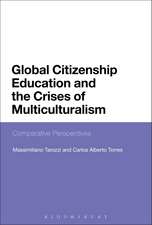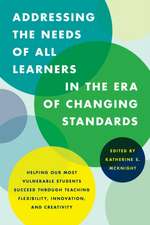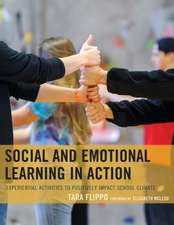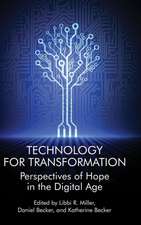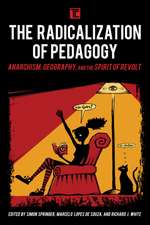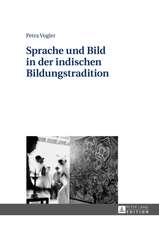Pedagogy of Hope for Global Social Justice: Sustainable Futures for People and the Planet: Advances in Education for Sustainable Development and Global Citizenship
Editat de Douglas Bourn, Professor Massimiliano Tarozzien Limba Engleză Hardback – 15 noi 2023
Preț: 540.96 lei
Preț vechi: 774.34 lei
-30% Nou
Puncte Express: 811
Preț estimativ în valută:
103.56€ • 106.51$ • 85.91£
103.56€ • 106.51$ • 85.91£
Carte tipărită la comandă
Livrare economică 17 februarie-03 martie
Preluare comenzi: 021 569.72.76
Specificații
ISBN-13: 9781350326262
ISBN-10: 1350326267
Pagini: 288
Ilustrații: 10 bw illus
Dimensiuni: 156 x 234 mm
Greutate: 0.58 kg
Editura: Bloomsbury Publishing
Colecția Bloomsbury Academic
Seria Advances in Education for Sustainable Development and Global Citizenship
Locul publicării:London, United Kingdom
ISBN-10: 1350326267
Pagini: 288
Ilustrații: 10 bw illus
Dimensiuni: 156 x 234 mm
Greutate: 0.58 kg
Editura: Bloomsbury Publishing
Colecția Bloomsbury Academic
Seria Advances in Education for Sustainable Development and Global Citizenship
Locul publicării:London, United Kingdom
Caracteristici
Addresses a range of local and global issues from global citizenship education Latin America to training teachers in global education
Notă biografică
Douglas Bourn is Professor of Development Education and Director of Development Education Research Centre at IOE, UCL's Faculty of Education and Society, University College London, UK. He is the editor of The Bloomsbury Handbook of Global Education and Learning (2020) and Education for Social Change (2022), both published by Bloomsbury.Massimiliano Tarozzi is UNESCO Chair in Global Citizenship Education in Higher Education and Professor in the Department of Philosophy and Communication Studies at the University of Bologna, Italy, where he is Founding Director of the International Research Centre on Global Citizenship Education. He is co-author, with Carlos Alberto Torres, of Global Citizenship Education and the Crises of Multiculturalism (2016) and Grounded Theory (2020), both published by Bloomsbury.
Cuprins
Series Editors' ForewordAcknowledgementsIntroduction: Introducing Pedagogy of Hope for Global Social Justice, Massimiliano Tarozzi (University of Bologna, Italy)Part I: Conceptualising Hope and global social justice1. Global Citizenship Education and Sustainability as Real Utopias, Carlos Alberto Torres (University of California Los Angeles, USA)2. Global Citizenship Education in Times of Pandemic: New Approaches for Transforming the World, Manuela Mesa (Instituto Universitario DEMOSPAZ, Spain)3. Utopia, Ecopedagogy, and Citizenships: Teaching for Socio-Environmental Justice, Development, and Planetary Sustainability, Greg William Misiaszek (Beijing Normal University, China) and Diana Cristina Oróstegui González (UCLA, USA)4. Global Values in School Curricula, Annette Scheunpflug, Martina Osterrieder, Anne-Christine Banze and Andrea Abele-Brehm (University of Bamberg, Germany)Part II: Global Perspectives on Global Social Justice5. Non Western Perspectives in Framing Global Citizenship Education: The Role of Higher Education Institutions, Mario R. Smith, Abigail Simons, Emma Wagener, Michelle Andipatin and Jose Frantz (University of the Western Cape, South Africa)6. A Social Network Analysis of Global Citizenship Education in Europe and North America, Massimiliano Tarozzi (University of Bologna, Italy) and Lynette Schultz (University of Alberta, Canada)7. Transforming a Global Competence Agenda Into Pedagogies of Intercultural Understanding and Student Voice: An Australian Case Study, Karena Menzie-Ballantyne and Miriam Ham (CQUniversity, Australia) 8. How Chinese Philosophies Affect the Chinese Understanding of Global Citizenship Education, Jun Teng (Beijing Normal University, China) and Yuxuan Gong (SUNY, USA)9. Decolonizing Citizenship, Becoming Planetary with Paulo Freire's Hope-In-Action in Brazilian Education, Silvia Elisabeth Moraes, Luiz Botelho Albuquerque and Diana Nara da Silva Oliveira (University of Sao. Paulo, Brazil)Part III: Applying Global Social Justice10. Transformative Social and Emotional Learning and Digital Learning for Global Citizenship Education: Limits and Possibilities, Yoko Mochizuki (UNESCO Mahatma Gandhi Institute of Education for Peace and Sustainable Development, India)11. The Evolving Development Education in Ghana: Implications for Social Justice and Pedagogies of Hope, John Kwame Boateng, Ellen M. Osei-Tutu and Olivia A. T. Frimpong Kwapong (University of Ghana, Ghana)12. Global Education for Teachers: Online Continuing Professional Development as a Source of Hope in Challenging Times, Frances Hunt and Nicole Blum (UCL Institute of Education, UK)13. Gender Equality - the Key Role of a Pedagogy of Critical Hope and Global Social Justice, Sandra Saúde (Polytechnic Institute of Beja, Portugal) and Lisa Ferro (Interdisciplinary Centre of Social Sciences, Portugal)14. Social Justice and Hope: Teachers' Continuing Professional Development in South Africa, Joyce Raanhuis (Cape Peninsula University of Technology, South Africa) Conclusion: Towards a Pedagogy of Hope For Global Social Justice, Douglas Bourn (UCL Institute of Education, UK)Index
Recenzii
Bringing in diverse voices and perspectives from a wide range of actors, this book provides strategies forsustainability and planetary citizenship. It is a must read for transformative action within schools, teacher education, and civil society organizations.
